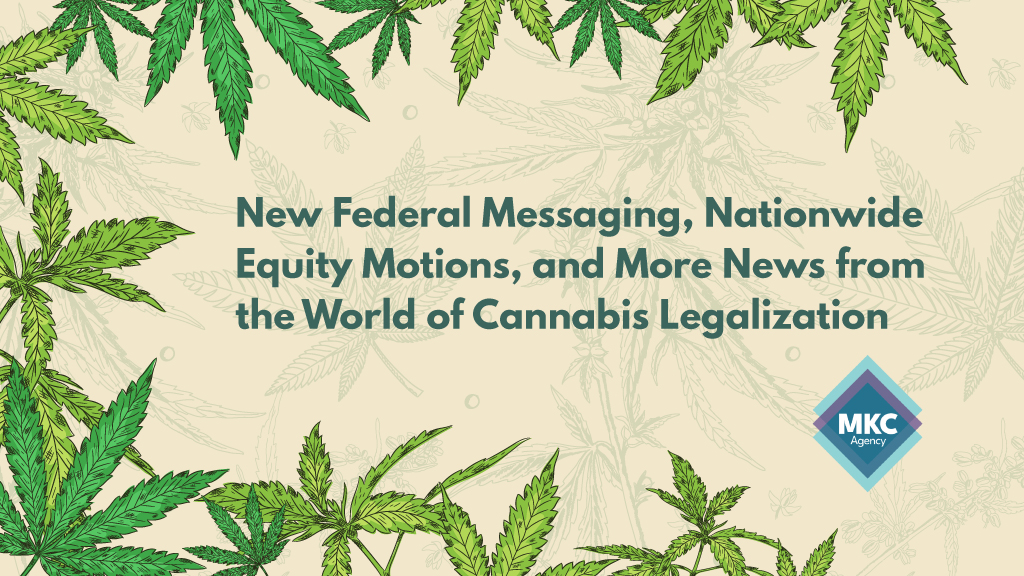With so many federal motions made regarding cannabis legalization, we’ve collected some of the largest for today’s blog. Remember—if you want to be a part of the cannabis legalization movement, reach out to your local lawmakers, attend meetings and rallies held by activists in your community, or [contact us] for more resources and information!
More Compassionate Messaging From Federal Sources
The federal government is working to create more coherent messaging around substances as the opioid crisis continues to escalate.
While the US Surgeon General released a Twitter statement solidifying his stance on cannabis and youth addiction (stressing that drugs should not be used to treat mental troubles), the White House Drug Czar opened a more comprehensive dialogue concerning the Biden administration’s stance on safe consumption sites. In his address, he stated we must explore “any and every option” to reduce deaths attributed to addiction and overdose.
Rahul Gupta, director of the Office of National Drug Control Policy (ONDCP), previously stated that he couldn’t comment about harm reduction centers. This was due to current litigation involving a Philadelphia organization that encountered a legal challenge after seeking to construct a harm reduction center. Luckily, that stance appears to be reversing, given his recent CNN statements. Highlights may be found on his Twitter page.
Nationwide Movements Towards Equity
Kentucky Gov. Andy Beshear (D) says legalizing medical marijuana at a federal level is “the future” of healthcare. He wants to allow farmers growing cannabis to sell to other states neighboring or nationwide.
Two Virginia lawmakers hosted an event where activists kicked off comprehensive efforts to decriminalize psychedelics. They also introduced legislation to reduce the criminal fines for possession, fast-track research, and more.
In the words of the nurse practitioner whose legislation would seek to decriminalize peyote (a cactus that contains the psychedelic compound mescaline), “It is increasingly a recognized treatment for refractory depression and PTSD,” said Del. Dawn Adams, D-Richmond, “It’s changed people’s lives.”
A Missouri representative filed a bill to prevent police forces from using the smell of marijuana as any “probable cause” when conducting a warrantless search of a home, motor vehicle, or other private property. This examination will undoubtedly change how cannabis is handled in the field by officers, hopefully opening the door to better equitable outcomes—especially for marginalized communities.
These motions were echoed by Senate Majority Leader Chuck Schumer in his December tweet:
“I’m working with @SenBooker and @RonWyden to pass our Cannabis Administration and Opportunity Act to end federal prohibition. It’s long past time to end the federal prohibition on marijuana and ensure equity for communities impacted by the War on Drugs.”
Opposition From Familiar Voices
Of course, not every movement is supported by those with more “classical” views on cannabis.
Senator Ted Cruz, for instance, criticized the recently confirmed U.S. attorney from Massachusetts for not seeking prosecution of those found to be in drug possession. By using Rachael Rollin’s legal past of compassionate leniency against her, he sadly echoes the problem with cannabis reform in the context of the War on Drugs—using outdated ideas to prosecute individuals simply continues a cycle of harm.
While momentum is crucial, it shouldn’t come at the cost of the constituents. Nikki Fried, a Democratic gubernatorial contender in Florida who is presently the agriculture commissioner, is under investigation for failing to properly declare revenue from medicinal cannabis lobbying activities.
The cannabis legalization movement changes by the minute, and there is no better time to get involved. Learn more about how the MKC Agency is dedicated to cannabis reform on our website, and we welcome you to [contact us] with any questions or news we may have missed!
Click here for further reading.







